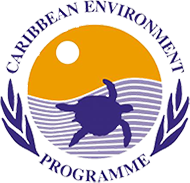Message from Christopher Corbin, Coordinator Cartagena Convention Secretariat, Ecosystems Division
United Nations Environment Programme (UNEP)
Plastic pollution is one of the most urgent environmental challenges of our time, a crisis impacting not only the health of our oceans but also the resilience of communities, economies, and ecosystems. In Jamaica and across the wider Caribbean, plastics are increasingly choking our coasts, harming marine life, and threatening the livelihoods of thousands who depend on healthy oceans.
The United Nations Environment Programme (UNEP) Cartagena Convention Secretariat, through the GEF-funded LAC Cities project, is working in six cities across Latin America and Caribbean and joining efforts with municipal and national governments, local communities, businesses and other key stakeholders to advance a circular economy for plastics, one that prioritizes prevention, reuse, and sustainable waste management.

Christopher Corbin, Coordinator UNEP Cartagena Convention Secretariat.
Through our Land-based Sources (LBS) Protocol, we have a mandate to support Jamaica, along with 15 additional Contracting Parties in preventing pollution from reaching the Caribbean Sea. Plastic pollution prevention is an integral part of this work.
Specifically In Kingston and Montego Bay, the project is identifying innovative, city-level solutions to reduce plastic waste leakage, strengthen recycling systems, and promote behavior change that addresses the root causes of plastic pollution.
We recognize the critical role of all stakeholders in these efforts. Government agencies, regulatory bodies, NGOs, community groups, academic institutions and the private sector have an important part to play in turning the tide. According to the United Nations Environment Programme (UNEP), over 35,000 Tonnes of plastic waste were generated in Kingston alone in 2018, with a significant portion leaking into waterways. Montego Bay faces similar environmental pressures. Without decisive, collective action, the global volume of plastics entering aquatic ecosystems is projected to triple by 2040.
There is a reason for optimism. Since 2021, Jamaica has taken meaningful steps to combat plastic pollution, including the successful implementation of bans on single-use plastic bags and Styrofoam containers. Building on this progress, a new regulation came into effect on July 1, 2024, prohibiting single-use plastic food containers made from polyethylene, polypropylene, or polylactic acid (PLA). By July 1, 2025, the scope of the ban will extend to personal care products containing intentionally added microplastics—further reinforcing Jamaica’s commitment to protecting its marine ecosystems and advancing a more sustainable future. As part of these major steps, Jamaica has also fostered public-private partnerships, including the work of Recycling Partners of Jamaica, which has been instrumental in strengthening the country’s plastic collection and recycling systems to help stem the tide of plastic pollution.
The work ahead involves strengthening and scaling these efforts, piloting new business models, improving waste collection and processing infrastructure, raising public awareness, and integrating circularity into urban planning and policy frameworks.
From June 1st to 8th, as Jamaica marks National Environmental Awareness Week, embracing both World Environment Day and World Oceans Day, we raise a powerful call to action. Now is the time for all partners to step up and intensify efforts toward sustainable plastic management. Let’s rally behind bold, lasting solutions that safeguard our oceans, protect marine life, and ensure a thriving, resilient future for generations to come. The health of our planet, and our people, depends on what we do next.
Turning the tide on plastic pollution is not just an environmental necessity; it is a social, economic, and moral imperative.






